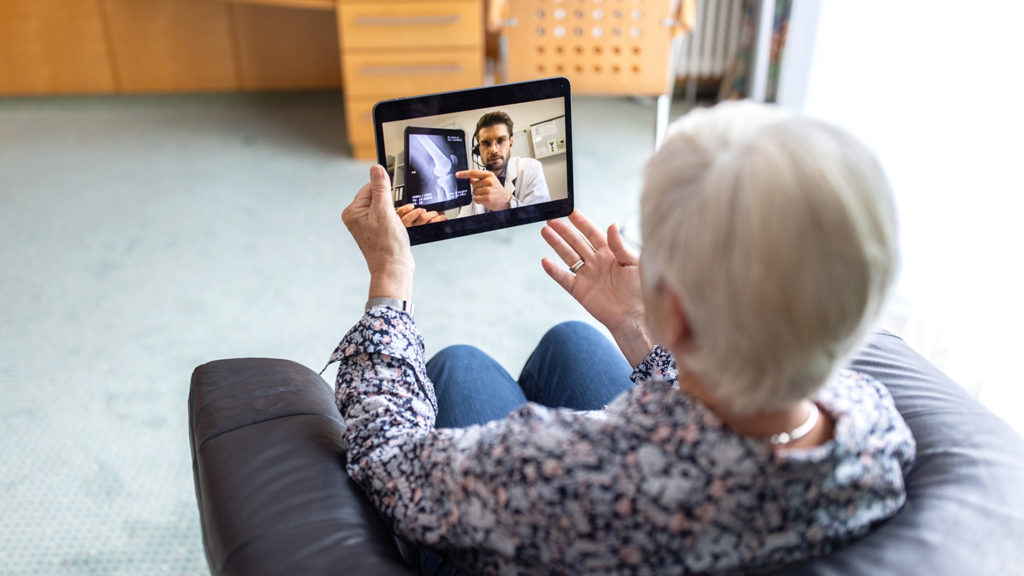
Participation in regular video chats can help improve memory in isolated older adults, slow cognitive decline, delay the onset of Alzheimer’s disease and reduce the overall societal burden of dementia, according to the results of a new study.
Results from the internet-based Conversational-Engagement Clinical Trial, or I-CONECT, provide evidence that social interactions or engaging in conversations can significantly affect brain health, according to study investigator Hiroko Dodge, PhD, of the Layton Aging and Alzheimer’s Disease Center at Oregon Health and Science University in Portland.
Dodge recently presented her findings at the Alzheimer’s Association International Conference 2022.
The I-CONECT trial included 186 socially isolated adults aged 75 or more years in Oregon and Michigan. Half of the adults participated in short weekly telephone calls, whereas the other half participated in a video chat program.
Video chat group members participated in 20-minute video calls with interviewers four times a week for six months, then twice a week for another six months. They also received weekly 10-minute phone check-ins to monitor social activities, health and mood.
The researchers looked at cognitive functions for language, attention, executive and memory, and overall emotional well-being. They reported that the intervention had a positive psychosocial effect, with improvements seen in participants’ emotional well-being.
“The oldest old is the fastest-growing segment of the population in most developed countries, and face the highest risk of developing dementia and social isolation,” the investigators stated. “User-friendly, sustainable prevention approaches are urgently needed in this population.”
Thirty-four percent of assisted living residents had diagnoses of Alzheimer’s disease and other dementias in 2018, according to a 2021 report from the Centers for Disease Control and Prevention’s National Center for Health Statistics.
The study, based on a previous pilot project, was funded by the National Institute of Aging. Partners in the study include the University of Michigan and Emory University.
Over the past 10 years, OHSU researchers have examined how virtual social interactions can impact the well-being of older adults. Guided by that data, OHSU developed a program — the I-CONNECT Foundation — for the wider community that features the same conversational material used in prior research. The program is open to older adults who have Internet access, and it is geared toward socially isolated individuals.




